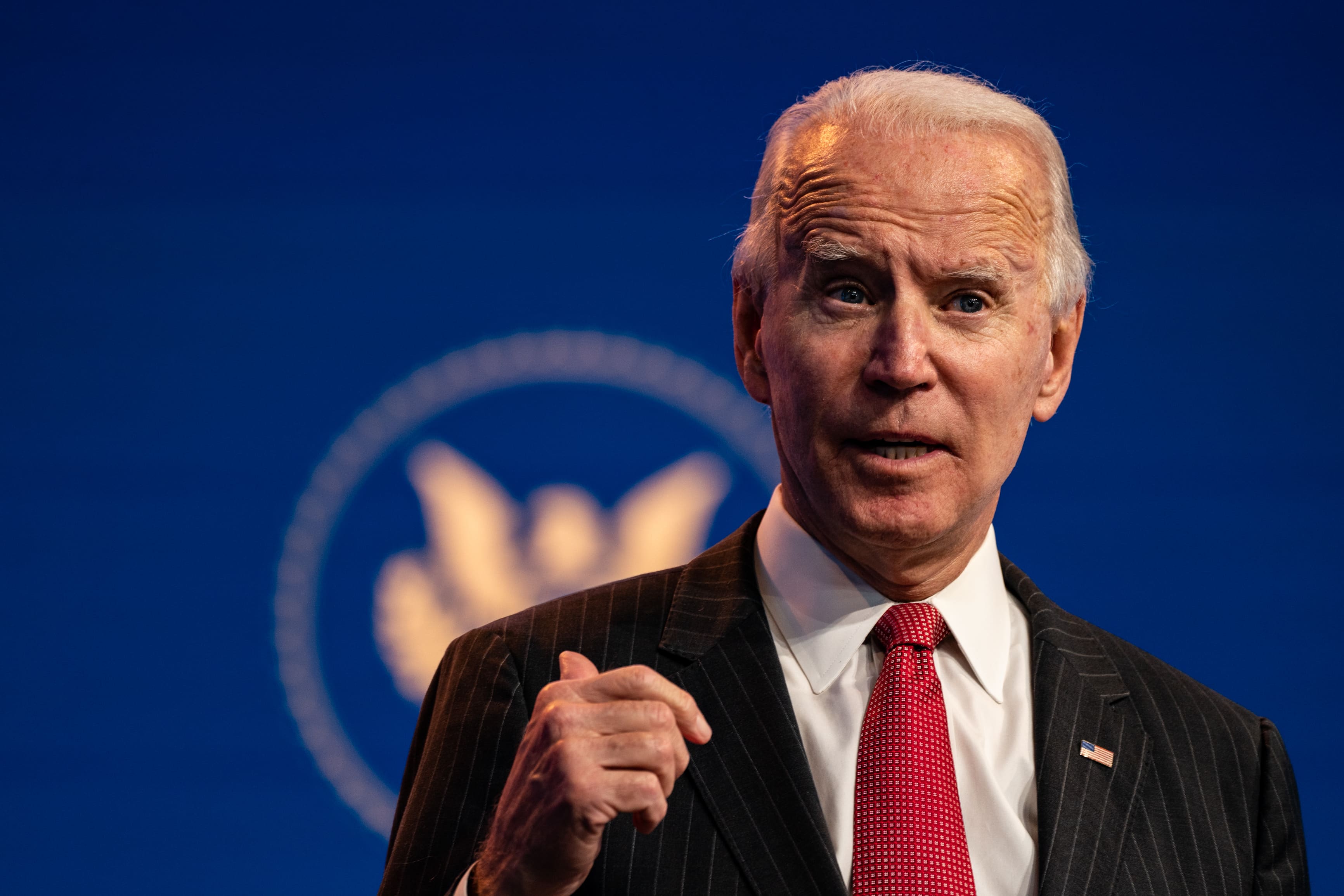WILMINGTON, DE – NOVEMBER 19: President-elect Joe Biden answers a reporter question after he delivered remarks at the Queen in Wilmington, Delaware on Thursday, Nov. 19, 2020. (Photo by Salwan Georges/The Washington Post via Getty Images)
The Washington Post | The Washington Post | Getty Images
President-elect Joe Biden will reenter the U.S. into the Paris Climate Agreement, the global pact forged five years ago among nearly 200 nations to avoid the worst impacts of climate change.
The move will come after President Donald Trump formally withdrew the country from the climate change agreement on Nov. 4, which was the earliest possible date under its terms. Biden said he will bring the U.S. back into the accord as early as February 2021.
Here’s a look at what rejoining means for the U.S. and the world and what could happen next.
What the Paris Agreement does
While the official U.S. exit from the accord further isolated Washington from the rest of the world, it won’t necessary have an immediate impact on international efforts to mitigate climate change and implement the framework of the agreement.
However, nearly every country in the world is part of the agreement. Of the 195 countries that signed the agreement, 189 countries officially adopted the accord and no other country besides the U.S. has abandoned it.
“Since the U.S. has one of the biggest economies in the world and has contributed the most to climate change, it is incredibly important that the U.S. return to the Paris agreement,” said Cornell University climate scientist Natalie Mahowald, a lead author of the 2018 U.N. report on climate change.
The pact is a nonbinding agreement among nations to reduce emissions and keep the increase in global temperatures well below 2 degrees Celsius (3.6 degrees Fahrenheit) compared to pre-industrial levels.
Global temperatures have already risen 1.2 degrees Celsius (2.2 degrees Fahrenheit) since pre-industrial levels and the atmosphere is on track to warm up by 1.5 degrees Celsius (2.7 degrees Fahrenheit) over the next two decades.
Warming at 2 degrees Celsius could trigger an international food crisis in coming years, according to a 2019 report from the U.N.’s scientific panel on climate change, and the general consensus among scientists is that the climate targets that countries are attempting to meet under the Paris accord are not sufficient.
The next round of U.N. climate talks is set to take place in Glasgow, Scotland in November 2021, in which countries are expected to submit new, more ambitious 2030 targets — and all eyes will be on the U.S.
How the U.S. will rejoin
Rebuilding trust with nations
The U.S. is the world’s second largest emitter of greenhouse gases behind China, and is seen as key in the global effort to avoid the worst impacts of climate change.
“U.S. leadership and the U.S.-China bilateral agreement to cut CO2 emissions were key to getting the Paris agreement on track,” said Mahowald. “Continued U.S. involvement and leadership is key to any effort to stop climate change.”
Upon rejoining, the U.S. will likely be expected to provide an updated climate target since the Obama administration’s goal and a concrete plan to reduce domestic emissions from the power and energy sector.
More broadly, the U.S. will have to rebuild trust with other nations in the agreement, especially after Trump’s legacy of climate change denial and his official withdrawal from the accord.
Trump’s rollbacks of a slew of environmental regulations and exit from the agreement shocked international allies and scientists. It also prompted some U.S. states, cities and corporations to part ways and move forward with their own climate plans.
For instance, 75 CEOs last year urged Trump to stay in the accord. Major corporations like Apple, Google, Goldman Sachs and Royal Dutch Shell signed a statement that argued it would strengthen their competitiveness in global markets and allow the U.S. to be a leader in developing technology that curbs carbon emissions.
Globally, the U.S. will have a great deal of work to do to catch up with other nations who have already unveiled bold climate initiatives. China, the world’s biggest carbon emitter, has pledged to become carbon neutral by 2060, and the E.U. has vowed go to carbon neutral by 2050.
Biden has said that the U.S. will recommit to its emission reduction goals under the accord and lead the effort to get other countries to improve their climate goals.
The former vice president has plans that extend beyond Paris, including a $2 trillion economic plan to invest in a transition from fossil fuels to clean energy, cut carbon emissions from electric power to zero by 2035 and reach net-zero emissions by 2050.
“My hope — and expectation — is that President Biden will indeed reenter the Paris Agreement quickly, spearhead a re-energized and much more ambitious U.S. commitment and take an intelligent and responsible role in the global effort,” said Appalachian State University environmental sciences professor Gregg Marland, who tracks global carbon emissions.
